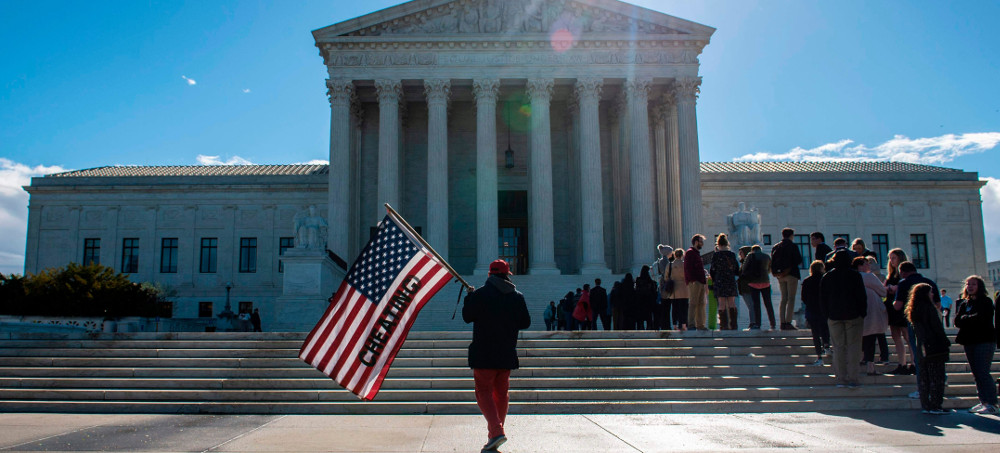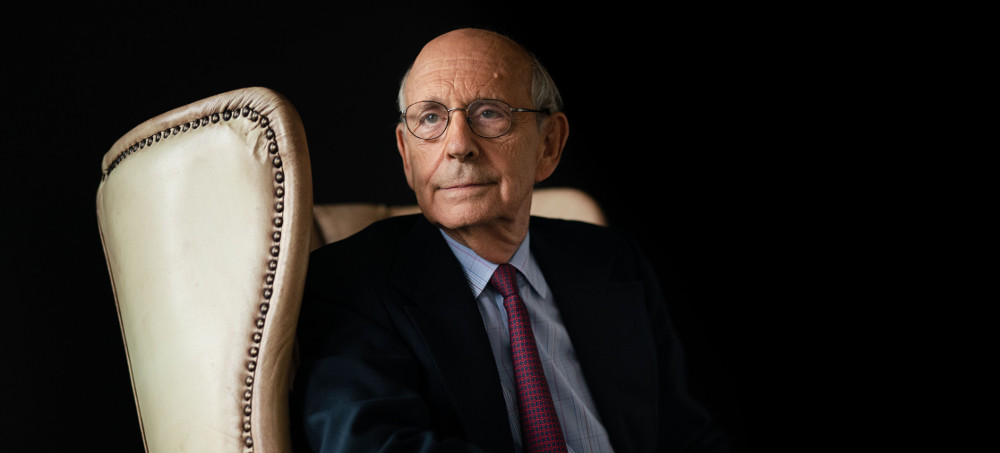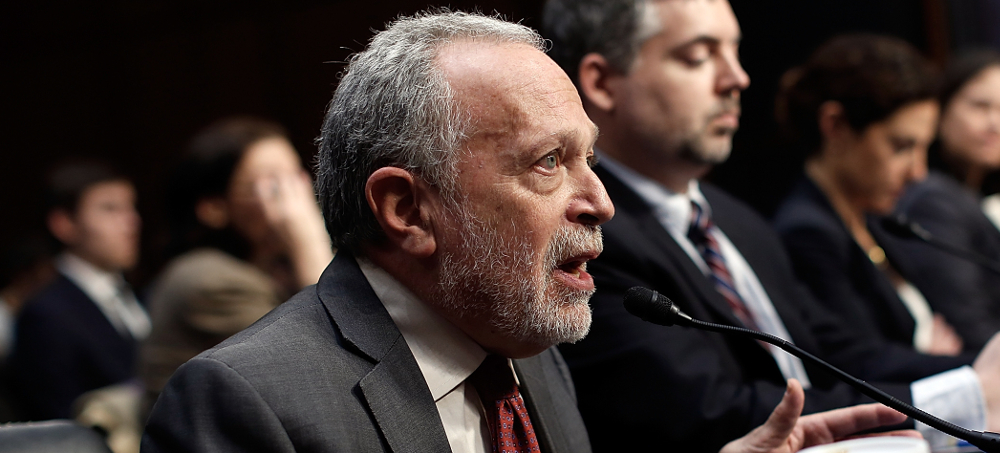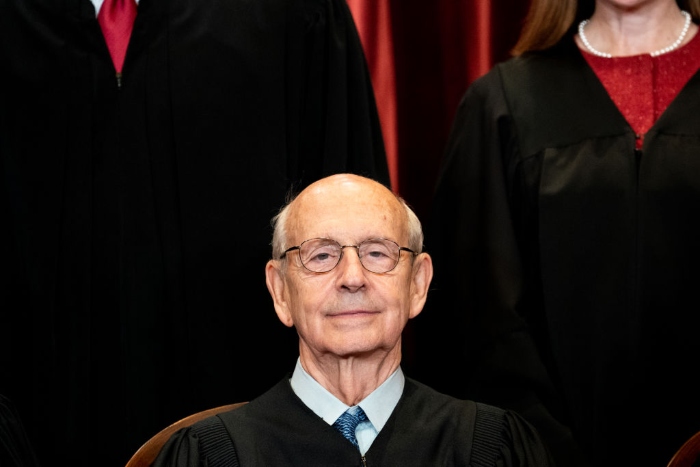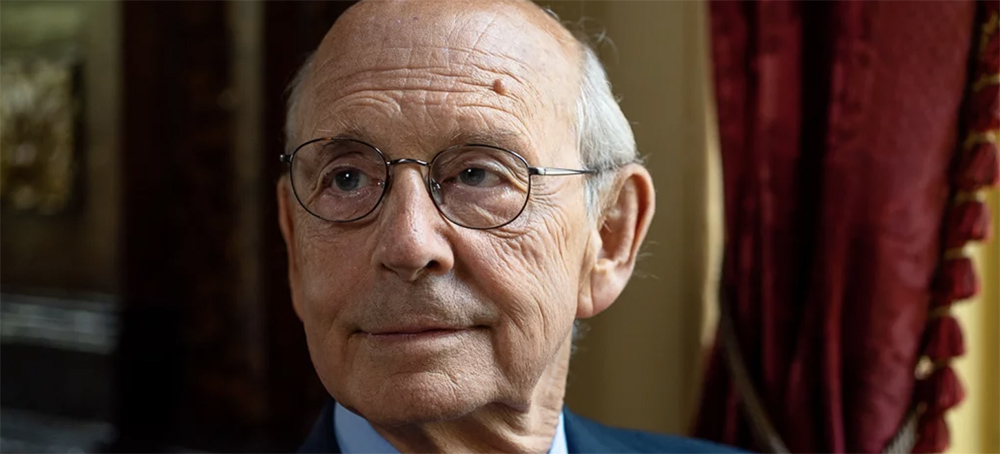Live on the homepage now!
Reader Supported News
Biden hasn’t even named his nominee yet, and already conservatives are saying she’s undeserving.
As New York magazine’s Jonathan Chait writes, conservative outlets are lamenting that Biden has elevated “skin color over qualifications,” accusing Biden of trying to foment “tribal warfare” and of engaging in “discrimination,” and insisting that the eventual nominee would be “an affirmative-action hire, a kind of a trophy in a display case. The token Black woman.” One conservative legal commenter sneered that instead of his preferred choice, the president would be appointing a “lesser black woman.” Republican senators have already indicated that they will not support anyone Biden nominates, so it’s not like the nominee’s qualifications would actually make a difference to them.
If this all sounds somewhat familiar, it’s because the last time a Democratic president nominated a woman of color to the Court, legal elites on the right and the left insisted that Sonia Sotomayor was an unqualified affirmative-action pick who was chosen only because she is of Puerto Rican descent. The idea that conservatives would not be making such arguments if Biden had not announced in advance that he would be appointing a Black woman is nonsense; Barack Obama did not announce any such criteria before nominating Sotomayor, and they said virtually the same things about her—conservatives attacked her as a “quota pick” who was chosen “because she’s a woman and Hispanic, not because she was the best qualified.” At the time, Sotomayor had more judicial experience before being nominated than any other sitting justice, and that remains the case today, with the appointment of three new justices by Donald Trump.
Now, I could point out that, like Sotomayor, every person on the shortlist of potential nominees has impeccable credentials. I could note that Supreme Court seats have long been about ethnic-coalition politics and patronage, as Slate’s Dahlia Lithwick and Mark Joseph Stern have written. I could point out that Ronald Reagan promised to appoint a woman to the bench during his campaign, because it was “time for a woman to sit among our highest jurists” and because such “appointments can carry enormous symbolic significance”; he ultimately nominated Sandra Day O’Connor. I could point out Reagan’s ongoing concern with representation when he nominated Antonin Scalia because he wanted a candidate of Italian “extraction.” I might note that George H. W. Bush’s nomination of Clarence Thomas to replace Thurgood Marshall, the first Black justice on the Court, was in keeping with previous eras’ tradition of having “Jewish” and “Catholic” seats. I might argue that under Trump, who similarly pledged to appoint a woman before selecting Amy Coney Barrett, having a law degree and a crank blog was sufficient qualification for the federal bench. And I could point out the absurdity of arguing that racism is when you first nominate a Black woman to the Supreme Court after more than 200 years, not when you exclude Black women from the nation’s highest court for more than 200 years.
These are all relevant points, but none of them would change anything, because the coordinated attack on the qualifications of a nominee who has not yet been named is not about preventing her from being confirmed. This is a relatively low-stakes judicial battle, because Biden’s choice will not alter the 6–3 conservative majority on the Court, and the Democrats’ slim Senate majority will likely be sufficient to confirm the nominee, barring unforeseen complications. This is not an argument that can be won by facts and logic, because it is not about winning an argument at all.
Rather, these attacks are meant to reiterate the narrative that liberals elevate unqualified Black Americans at the expense of others who are truly deserving, as part of a larger backlash narrative, one that echoes past eras in American history, in which advocacy for equal rights is turning white conservatives into an oppressed class. Republicans will likely be unable to block the nominee, but they can extract a political price, motivate their own voters, and dull the historic significance of Biden’s choice by orienting the political conversation around the idea that another shiftless Negro is getting free stuff at others’ expense.
“Black women are, what, 6 percent of the U.S. population?” Senator Ted Cruz of Texas helpfully summarized on his podcast. “He’s saying to 94 percent of Americans, ‘I don’t give a damn about you.’” Cruz continued, “He’s saying, ‘If you’re a white guy, tough luck. If you’re a white woman, tough luck. You don’t qualify.’” All of the nonwhite justices in American history would fill a third of the current Court. For Cruz, this is apparently far too many.
This kind of political narrative predates affirmative action by more than a century. During Reconstruction, President Andrew Johnson complained that Congress’s attempt to defend the rights of the emancipated as the white South tried to force them back into conditions of near slavery amounted to establishing “for the security of the colored race safeguards which go infinitely beyond any that the General Government has ever provided for the white race.” Running for president in 1868, a few short years after abolition, Horatio Seymour, the Democratic nominee, argued that the “laborers at the North” had been made to “feed and clothe these idle Africans,” as though all the South’s wealth had not been built on their labor. The Supreme Court justices who struck down a law in 1888 barring discrimination on the basis of race, helping pave the way for Jim Crow, argued that the time had come for Black Americans to cease being a “special favorite of the laws.” The idea that Black people are getting something they have not earned by gaining access to something white people have long had began the second that slavery was abolished.
Of course, Black Americans are not the only ethnic minority that has been attacked in this way in Court confirmation battles. Sotomayor is far from the first or only example. In his history of the Thurgood Marshall confirmation fight, the journalist Wil Haygood recounts that the patrician nativist Senator Henry Cabot Lodge attacked the first Jewish nominee, Louis Brandeis, in similar terms. “If it were not that Brandeis is a Jew, and a German Jew,” Lodge insisted, “he would never have been appointed and he would not have a baker’s dozen of votes in the Senate. This seems to be in the highest degree un-American and wrong.” The segregationist Strom Thurmond accused Marshall, by then a judge, former solicitor general, and litigator of great renown, of lacking “an elementary knowledge of basic constitutional principles.”
As the above examples show, the initial appointment of a member of an underrepresented minority to the Court has frequently been met with the insistence that he or she does not deserve the position. Attacks on a nominee’s qualifications, especially when a nominee has extensive legal experience, or in this case, when she has not yet been named, tend to be proxies for ideological objections. Republicans would have few concerns about nominating some baby-faced Federalist Society ideologue who had been shoveled onto the federal bench a few months prior. Thurmond objected to Marshall both because he was Black and because Marshall had spent his life fighting for racial equality, a principle Thurmond had spent his life opposing. Questioning Marshall’s qualifications was a way to register those objections in the language of constitutional fidelity rather than mere prejudice.
Marshall’s opponents failed to block his nomination, but they nevertheless used it as a platform for their own narrative, which was that the civil-rights movement and a liberal Supreme Court, rather than centuries of discrimination and exclusion, were responsible for the riots erupting across the nation, and that confirming Marshall would make such problems worse. Marshall’s opponents, Wil Haygood writes, “figured it a potent time to bring up issues of crime and security, which they imagined would greatly weaken Marshall given his reputation as an attorney who had fought to give the accused equal rights.”
Those objecting to Biden fulfilling his pledge to nominate a Black woman in this manner are similarly using this opportunity to put forth a familiar narrative, that liberals elevate unworthy Black candidates at the expense of those more deserving.
Appeals to meritocracy in this context are not about merit; they are a means to diminish people whom these critics would see as undeserving no matter what they achieve. If the Republicans seeking to stoke resentment over this appointment can successfully turn the story of the first Black woman on the Supreme Court into another example of Black people getting free stuff they haven’t earned, they will be perfectly satisfied, even if she is confirmed. The important battles over the future of the Court have already taken place, and the right has already won them.
Follow us on facebook and twitter!
PO Box 2043 / Citrus Heights, CA 95611

